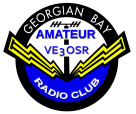2022-04-07, 10:05:38
The following suggestions will reduce the difficulty in matching an antenna with a tuner:
1. Never center feed a half-wave multi-band antenna with a high impedance feedline that is close to an odd multiple of a quarter-wave long.
2. Never center feed a full-wave antenna with any feedline close to a multiple of a half-wave long.
3. If a tuner will not tune a multi-band antenna, add or subtract 1/8 wave of feedline (for the band that won't tune) and try again.
4. Never try to load a G5RV or cente fed dipole on a band below the half-wave design frequency. If you want to operate an 80 meter antenna on 160 meters, feed either or both conductors as a longwire against the station ground.
To avoid problems matching or feeding any dipole antenna with high impedance lines, keep the lines around these lengths
[ The worst possible line lengths are shown in brackets ]:
160 meter dipole:
35-60, 170-195 or 210-235 feet.
[ Avoid 130, 260 ft]
80 meter dipole:
34-40, 90-102 or 160-172 feet.
[ Avoid 66, 135, 190 ft ]
40 meter dipole:
42-52, 73-83, 112-123 or 145-155 feet.
[ Avoid 32, 64, 96, 128 ft ]
NOTE:
Some trimming or adding of line may be necessary to accommodate higher bands.
WARNING:
To avoid problems, a dipole antenna should be a full half-wave on the lowest band.
On 160 meters, an 80 or 40 meter antenna fed the normal way will be extremely reactive with only
a few ohms of feedpoint resistance. Trying to load an 80 meter (or higher frequency) antenna on
160 meters can be a disaster for both your signal and the tuner. The best way to operate 160 with
an 80 or 40 meter antenna is to load either or both feedline wires (in parallel) as a longwire. The
antenna will act like a "T" antenna worked against the station ground
Taking the antenna tuner approach is not a good idea when you are using coaxial cable under high (greater than 3:1) SWR conditions. The tuner may provide the 50 ohm match to your radio, but the mismatch and high SWR still exists between the antenna tuner and the antenna! This translates to high losses in the coaxial cable.
1. Never center feed a half-wave multi-band antenna with a high impedance feedline that is close to an odd multiple of a quarter-wave long.
2. Never center feed a full-wave antenna with any feedline close to a multiple of a half-wave long.
3. If a tuner will not tune a multi-band antenna, add or subtract 1/8 wave of feedline (for the band that won't tune) and try again.
4. Never try to load a G5RV or cente fed dipole on a band below the half-wave design frequency. If you want to operate an 80 meter antenna on 160 meters, feed either or both conductors as a longwire against the station ground.
To avoid problems matching or feeding any dipole antenna with high impedance lines, keep the lines around these lengths
[ The worst possible line lengths are shown in brackets ]:
160 meter dipole:
35-60, 170-195 or 210-235 feet.
[ Avoid 130, 260 ft]
80 meter dipole:
34-40, 90-102 or 160-172 feet.
[ Avoid 66, 135, 190 ft ]
40 meter dipole:
42-52, 73-83, 112-123 or 145-155 feet.
[ Avoid 32, 64, 96, 128 ft ]
NOTE:
Some trimming or adding of line may be necessary to accommodate higher bands.
WARNING:
To avoid problems, a dipole antenna should be a full half-wave on the lowest band.
On 160 meters, an 80 or 40 meter antenna fed the normal way will be extremely reactive with only
a few ohms of feedpoint resistance. Trying to load an 80 meter (or higher frequency) antenna on
160 meters can be a disaster for both your signal and the tuner. The best way to operate 160 with
an 80 or 40 meter antenna is to load either or both feedline wires (in parallel) as a longwire. The
antenna will act like a "T" antenna worked against the station ground
Taking the antenna tuner approach is not a good idea when you are using coaxial cable under high (greater than 3:1) SWR conditions. The tuner may provide the 50 ohm match to your radio, but the mismatch and high SWR still exists between the antenna tuner and the antenna! This translates to high losses in the coaxial cable.




